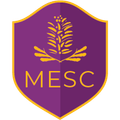VPC Subjects

VPC subject options:
You’ll need to complete 12 or more units, including at least:
- 2 VPC Literacy units (or units from the VCE English group including VCE VM Literacy)
- 2 VPC Numeracy units (or units from the VCE Mathematics group including VCE VM Numeracy)
- 2 VPC Work-Related Skills units
- 2 VPC Personal Development Skills units.
The remaining four units can come from other VPC units or from a VET Certificate I or above subject.
You could also spend time learning in a workplace. You can combine the VPC with VCE or VCE VM units, or VET at Certificate I level or above.
VPC Literacy:
VPC Literacy enables the development of knowledge, skills and capabilities relevant to reading, writing and oral communication and their practical application in the contexts of everyday life, family, employment, further learning and community.
This study provides students with the key skills and knowledge to interpret and create texts with appropriateness, accuracy, confidence and fluency, as well as for learning in and out of school, and for participating in the workplace and community. The word ‘text’ refers to any attempt to communicate through written, visual or spoken language that can be assigned meaning and can be drawn from a range of sources including media texts, multimodal texts, texts used in daily interactions such as print and social media, and workplace texts such as operational and instruction manuals in everyday and familiar settings.
This study is intended to meet the literacy needs of students with a wide range of abilities and aspirations.
VPC Numeracy:
The purpose of this study is to enable students to develop their everyday numeracy practices to make sense of their personal, public, and future vocational lives. Students develop foundational mathematical skills with consideration of their personal, home, vocational and community environments and contexts, and an awareness and use of accessible and appropriate technologies.
This study focuses on providing students with the fundamental mathematical knowledge, skills, understandings and dispositions to solve problems in real life contexts for a range of workplace, personal, further learning and community settings relevant to contemporary society. The numeracies will be situated in accessible, concrete and highly familiar contexts where the mathematics content is explicit with little or no text or distracting information.
The contexts are the starting point and the focus and are framed in terms of personal, financial, civic, and health and recreational classifications. The numeracies are introduced using a problem-solving cycle with four components:
- identifying the mathematics
- acting on and using mathematics
- evaluating and reflecting
- communicating and reporting.
The mathematics includes foundational skills related to measurement, shape, numbers, and graphs applied to tasks that are part of the students’ everyday lives. At the end of the two units, students should be able to attempt structured and supported activities and tasks that require simple processes such as counting, sorting, comparing and performing basic arithmetic operations with whole numbers and common, simple fractions and decimals, money, or recognising common spatial representations and measurements in highly familiar contexts.
VPC Personal Development Skill (PDS):
VPC Personal Development Skills (PDS) takes a dual approach to exploring and optimising personal development. This is done through a focus on understanding and caring for self, and then through a focus on engagement with community.
The foundational pillars of this study are physical, social and emotional health and wellbeing, which are realised by self-reflection of the students. Students are supported through the curriculum to make positive connections between self-understanding, setting and achieving goals, purposefulness, resilience and enhanced health and wellbeing. They look at the significance of self-care in a range of contexts including physical care, relationships and online environments. Students articulate concepts of consent, equity and access, and reflect on how to express themselves in safe and effective ways.
This study has a major focus on the links between personal development and community engagement. Students take a broad approach to defining community, and look through a personal lens at belongingness, community participation and what it means to be part of a democratic society. They investigate how young people can become involved in their local communities and consider how the engagement of individuals contributes to community development.
PDS emphasises student participation in activities that explore and utilise skills that are essential to self-development, the pursuit of health and wellbeing, and the capacity to contribute to community.
VPC Work Related Skills (WRS):
VPC Work Related Skills (WRS) enables the development of knowledge, skills and personal attributes relevant to further education and employment. The study also provides practical, authentic opportunities for students to develop employability skills.
This study examines four key areas: workplace health and culture; skills and capabilities; planning and executing a small-scale work-related activity; and activities related to seeking employment and further training.
WRS has a major focus on the relationship between personal interests and skills, employment and education opportunities and pathway planning. Students apply their knowledge and understanding to practical and collaborative activities to prepare for the process of applying for jobs and being a valued and productive employee in the workplace.
WRS emphasises student participation in activities that develop tangible employability skills and prepares students for their desired future pathway.
